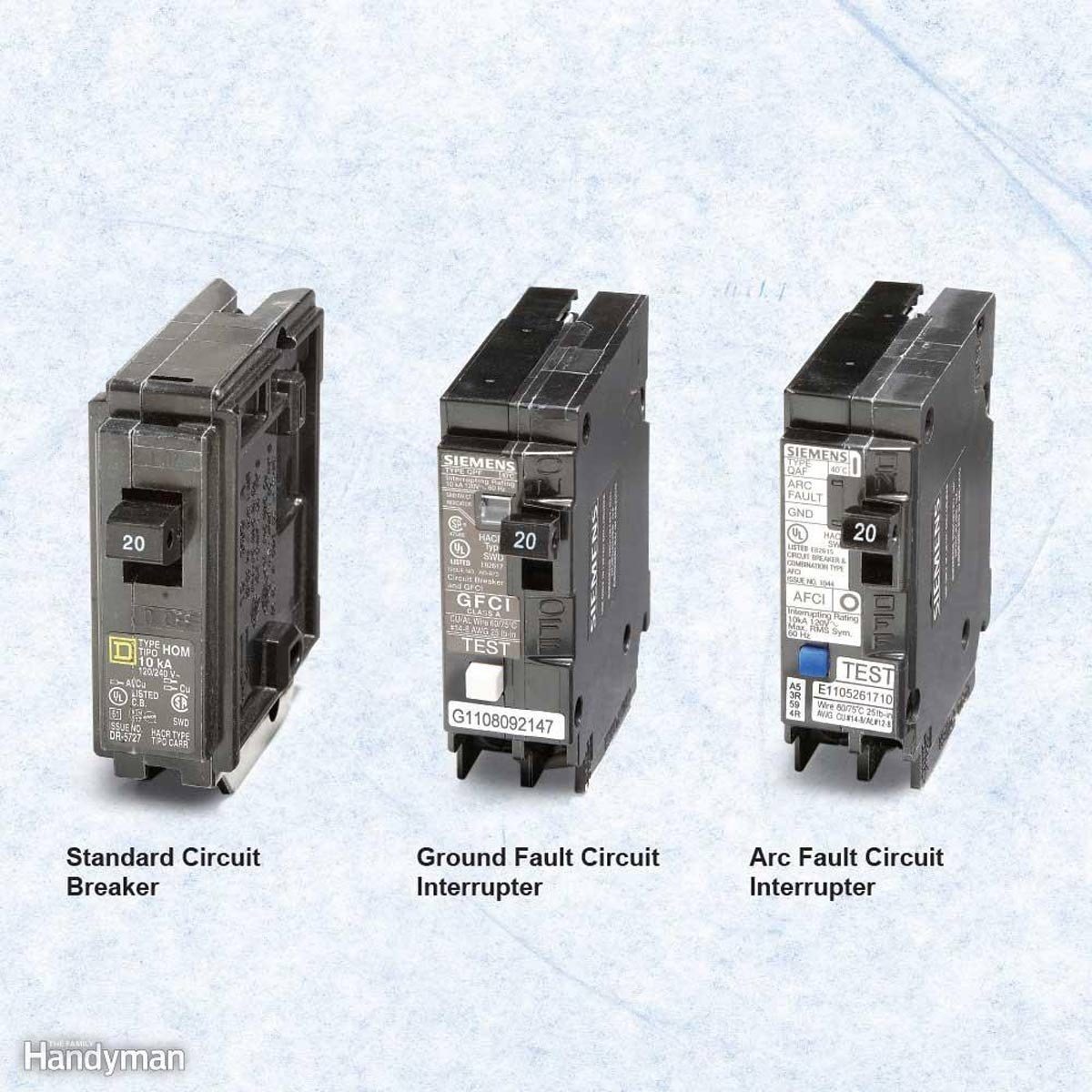The 8 Most Common National Electric Code Violations DIYers Make

Don’t Choose the Wrong Circuit Breaker
To help you understand which electrical protection goes where, consider what each type of breaker was designed to do and make sure to follow the national electric code.
Standard circuit breaker
Circuit breakers protect home electrical wiring and equipment like furnaces, air conditioners, dryers and stoves. Standard circuit breakers are better at protecting wiring and equipment than preventing fires and protecting people. That’s why they have largely been replaced by GFCIs and AFCIs. There are only a few places left where standard circuit breakers can be used, typically for large home electrical appliances.
Ground fault circuit interrupter
Ground fault circuit interrupters (GFCIs) protect people in areas where they are likely to be using small appliances and where water is present. GFCI breakers and outlets have been around for a while, and most people know they’re required in bathrooms, kitchens and outdoors, but our experts are still finding home electrical violations, especially in these areas: garages, crawl spaces, storage/work areas in unfinished basements, wet bars (within 6 ft. of a sink), and sump pumps. And don’t forget that GFCIs need to be readily accessible in order to be reset. This means they shouldn’t be installed on the ceiling or buried under a hydro massage tub without an access panel.
Arc fault circuit interrupter
Arc fault circuit interrupters (AFCIs) prevent fires in all living areas where appliance cords are prone to be pinched or crimped, or chewed by pets.They used to be required only on bedroom circuits, but the National Electrical Code now requires AFCI protection in all living areas. They’re equipped with sophisticated electronics that can detect an arcing condition (like in a frayed lamp cord), which may not be detected by a standard circuit breaker until after a fire has started. AFCI protection is not just required for new construction; it’s now also required where branch-circuit wiring is modified, replaced or extended into existing homes. Plus: All DIYers need to know these 24 acronyms.
https://www.familyhandyman.com
Comments
Post a Comment